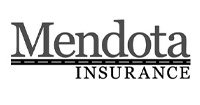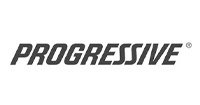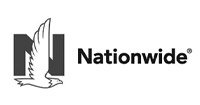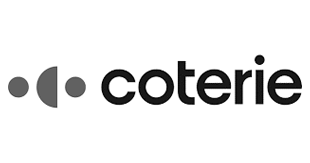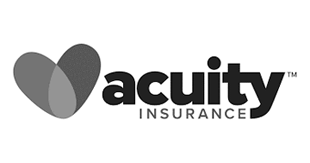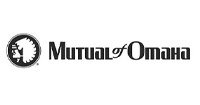What is a business owner’s policy?
Business owner’s policy
A business owner’s policy (BOP) bundles general liability insurance with commercial property insurance. It typically costs less than if the policies were bought separately.
Does your small business need a BOP?
If you own or rent a workspace, you likely need a business owner’s policy.
Most small businesses need general liability insurance and commercial property insurance when they rent or own an office or other commercial space. On top of that, client contracts often require general liability coverage.
Even when coverage isn’t required, a BOP is a wise choice for small businesses that work directly with the public and own property. This policy protects against financial losses from customer accidents and incidents like fires and burglaries.
A BOP is specifically designed for low-risk small businesses. If you qualify, your business saves money and gains coverage for the most common claims.
What does a business owner’s policy cover?
A business owner’s policy includes both general liability insurance and commercial property insurance. Together, they provide liability and property coverage for your small business.
General liability insurance
General liability insurance covers the cost of lawsuits from people outside your business who sue over bodily injury or property damage. It also pays legal costs related to advertising injuries, including defamation and copyright infringement.
Businesses that lease commercial space, have a mortgage, or work with expensive client property are often required to carry this type of coverage.
Commercial property insurance
Commercial property insurance pays for repair or replacement of damaged, destroyed, or stolen business property. That includes your commercial space (if you own it), supplies and equipment, and product inventory.
Businesses with assets vulnerable to fires, burglaries, and physical damage benefit from this insurance coverage.

Is your business eligible for a business owner’s policy?
Probably – but not all types of businesses are eligible. To qualify for BOP savings, businesses typically must have:
- A low-risk industry
- Fewer than 100 employees
- Less than $1 million in annual revenue
- A small commercial space
Should you purchase a BOP or just general liability insurance?
If your business owns valuable property, consider a BOP. A business owner’s policy provides general liability coverage and also pays for damage or loss of your building, equipment, and inventory.
Businesses that interact with the public rely on a general liability policy to cover third-party lawsuits over bodily injuries and property damage. But this insurance doesn’t provide coverage for fire, theft, and other incidents that damage or destroy your property.
A BOP offers both types of coverage at a lower cost than buying the policies separately. That makes it a smart choice for small business owners.
How does a BOP protect your business?
A BOP can pay for your legal fees during a lawsuit. It also covers repair or replacement of damaged or lost property.
Here are a few situations where home businesses, freelancers, and small businesses benefit from this policy:
| Home business | Freelancer | Small business | |
|---|---|---|---|
| Liability protection | A courier trips on your uneven porch while delivering a package and sues over the injury. | A client asks you to provide a certificate of liability insurance in case you damage equipment at their office. | Your commercial lease requires general liability insurance. |
| Advertising injury protection | A competitor accuses you of libel after you share an unflattering post on social media. | A photographer sues for copyright infringement after you use a licensed image on your website. | A class-action lawsuit accuses your business of failing to protect your clients’ right to privacy. |
| Business property protection | A home fire destroys your business’s product inventory. | A criminal steals your computer. | Extreme weather damages your office building. |
How do you get proof of general liability insurance?
You can usually get proof of insurance online on the same day you start a business owner’s policy through Safe Harbor Insurance.
It can take several weeks for a traditional insurance agency to send a certificate of commercial liability insurance to new customers. That’s an issue for business owners who need immediate proof of insurance to sign a pending contract.
How much does a business owner’s policy cost?

Your cost is based on a few factors, including:
- Amount of coverage
- Business property value
- Industry and business operations
- Business location
- Number of employees
Business owner’s policies cost an average of $53 per month. This is based on the median cost of policies. And 12% of Safe Harbor Insurance’s small business customers pay less than $33 per month for this policy.
Is it possible to add coverage to a BOP?
Yes. Business owner’s policies are flexible. You can add additional coverages, also called endorsements, to your BOP insurance to meet your specific needs.
Many businesses bundle their BOP with other coverage options:
- Business interruption insurance (also known as business income insurance) covers loss of income and extra expenses when there is a temporary disruption in your business operations.
- Data breach insurance (also known as cyber liability insurance) helps retail stores and other businesses recover when a data breach exposes customer data like credit card numbers.
- Hired and non-owned auto insurance provides coverage for leased and personal vehicles that a business owner occasionally uses for commercial purposes like visiting clients.
- Liquor liability insurance protects bars and restaurants if they serve alcohol to an intoxicated person who goes on to cause property damage or harm someone else.
- Professional liability insurance (also known as errors and omissions insurance) protects businesses when a client disputes the quality of a professional service.
If you serve large clients or run a high-risk business, you can add commercial umbrella insurance to your business owner’s policy. Umbrella insurance extends your maximum general liability limits, meaning your insurance company can cover more expensive lawsuits.
What other policies are essential for small businesses?
Most states require these policies for businesses that have employees or a company vehicle:
- Workers’ compensation insurance covers medical expenses and lost wages for work-related injuries and illnesses. It’s typically required as soon as you hire your first employee.
- Commercial auto insurance provides coverage for business vehicles. It’s required when your business owns the vehicle or you use it primarily for work.
What does a business owner’s policy cover?
A business owner’s policy bundles two policies to protect against liability and property risks. General liability insurance helps pay for common lawsuits, while commercial property insurance covers your business property.
A business owner’s policy provides coverage for:
- Third-party bodily injury
- Advertising injuries
- Product liability
- Third-party property damage
- Advertising injuries
Third-party bodily injury
If a customer is hurt on your property, the general liability insurance portion of your BOP can help pay for medical expenses or legal expenses in the event of a lawsuit.
Example: A customer trips on an uneven front step at a restaurant and breaks her wrist. To recoup the cost of her medical expenses, she decides to sue. The restaurant’s BOP covers the cost of the resulting legal battle, including attorney’s fees and the court-ordered judgment over the injury.
Third-party property damage
The general liability portion of a BOP can help repair or replace damaged customer property. It can also pay legal fees if a customer sues over the damage.
Example:An employee at a lawn care business accidentally drives a riding mower into a pergola, causing $2,000 in damages. The company’s BOP pays to repair the pergola. It would also cover legal costs if the homeowner decided to sue.
Product liability
Property damage or customer injuries don’t have to happen on you or your client’s property. If a business manufactures, distributes, or sells products, it can be sued over the harm those products cause to people or property.
Example:A janitorial services company sells cleaning products on the side. A customer accidentally gets the solution in his eye. He ends up in the emergency room and sues the cleaning company for damages. The company’s product liability insurance helps cover the legal expenses and eventual settlement.
Advertising injuries
If someone sues a business owner or employee over an advertising injury such as libel, slander, or copyright infringement, the liability portion of a BOP can help pay for lawsuit expenses.
Example:An employee at a house cleaning company posts a negative comment about a competing cleaning service on the company’s Facebook page. The competitor sues for defamation. The advertising injury coverage including in the cleaning company’s BOP helps pay for legal defense expenses and the resulting settlement.
Business property damage
The commercial property insurance portion of a BOP can help pay for expenses to repair or replace your business property when it’s damaged by fire, theft, and some weather-related events.
Example. A thief breaks into a tax preparer’s office and steals laptops and other electronic equipment. Commercial property insurance can help pay to replace the stolen items and repair the broken window.
A business owner’s policy does not cover:
- Professional errors
- Employee discrimination lawsuits
- Employee injuries
- Destroyed payment records
Professional errors
Professional liability insurance, also called errors and omissions insurance, can cover lawsuits over professional mistakes, including undelivered services and missed deadlines.
Example: A web developer misses a deadline for launching a website advertising a clothing store’s holiday campaign. The store’s owner decides to sue the developer over the revenue the website was projected to generate.
Employee injuries
Workers’ compensation insurance is the policy that covers medical expenses, physical therapy, and some lost wages for employees who are injured at work.
Example: A carpenter injures his back while lifting heavy boards at a worksite. Workers’ comp can help cover his medical expenses and part of the wages lost while he recovers.
Employee discrimination lawsuits
Employment practices liability insurance (EPLI) can cover lawsuit expenses related to claims of harassment, discrimination, and wrongful termination.
Example:A real estate agent files a lawsuit claiming that her agency assigns the most valuable properties to male agents. An EPLI policy could cover legal expenses for the real estate agency.
Destroyed payment records
If a fire or other incident destroys your customer records, you could have trouble collecting outstanding payments. Commercial property insurance doesn’t cover the cost of recovering these payments unless your policy has an accounts receivable endorsement.
Example: A fire at a medical office destroys the business’s customer payment records. To collect missing payments, the office hires a temporary accounting professional – paid for by the accounts receivable endorsement on its BOP.
Business owner’s policy exclusions
BOPs have some coverage exclusions. For example, a BOP doesn’t usually pay for property damage caused by natural disasters like earthquakes, hurricanes, tornadoes, and floods. If you need coverage for these events, you’ll need to add a special endorsement to your policy.
A BOP also doesn’t pay legal defense costs for lawsuits involving intentional copyright infringement or willful negligence – which can be criminal offenses. Purposeful customer injury or property damage falls into the same category and isn’t covered by the policy.
Incidents that involve alcohol are also excluded from a BOP. With a liquor liability endorsement, you can get coverage for these claims.
How much does a business owner’s policy cost?
A BOP bundles general liability and commercial property insurance at a discount. Your level of risk, the value of your business property, and your policy limits will affect your costs.
BOP average costs for Safe Harbor Insurance customers
Regardless of policy limits, the average cost of a business owner’s policy is $99 per month or $1,191 annually.The median premium is $53 per monthor $636 per year. In general, medians eliminate outliers to provide a more accurate indication of insurance costs.
Many Safe Harbor Insurance small business customers (12%) pay less than $400 per year for a business owner’s policy, and 48% pay between $400 and $800 per year.
These figures were sourced from an analysis of policies issued to Safe Harbor Insurance customers.

Industry risks impact business owner’s policy costs
For the general liability insurance portion of a BOP, your industry has a significant impact on policy costs. Generally, high-risk industries pay higher premiums, while low-risk industries enjoy lower rates.
For example, a busy restaurant is exposed to more risk of customer injury than an IT consultant working remotely from a home office. Construction businesses and retail stores also have high coverage costs because these industries often have valuable equipment or inventory, as well as increased third-party liability.

Property value impacts business owner’s policy costs
For the commercial property insurance portion of a BOP, the cost of insurance depends on the value of your business property, its location, and how you choose to protect it.
Business personal property (BPP) value
To protect your property, the first step is knowing what it’s worth. You’ll need an estimate of your business personal property. The amount will help you determine appropriate limits to make sure your insurance can cover the cost of replacing or repairing stolen, lost, or damaged items.
Location and age
The value of your building and subsequent insurance costs vary dramatically depending on where your business is located. For example, a small retail shop in rural Pennsylvania would cost much less to insure than a similar retail shop in urban California. Old buildings may also incur higher insurance rates as they are more susceptible to damage.
Replacement value versus actual cash value
The cost of a BOP varies depending on how you choose to insure your business personal property. You can insure it for its replacement value (cost when new), or save money by insuring it for its actual cash value (depreciated value).
How coverage limits affect insurance costs
If you want car insurance that pays for a wide range of damage, you have to pay more for it. The same rule applies to business insurance. If you want a policy with higher coverage limits, expect to pay more than you would for basic coverage.
The most popular business owner’s policy among Safe Harbor Insurance customers is the $1 million / $2 million policy. This includes:
$1 million occurrence limit. While the policy is active, the insurer will pay up to $1 million to cover any single claim.
$2 million aggregate limit. During the lifetime of a policy (usually one year), the insurer will pay up to $2 million to cover claims.
Which business owner’s policy limits do small businesses choose?
The majority of Safe Harbor Insurance customers (88%) chose a BOP with $1 million / $2 million limits. Another 10% of our customers chose a policy with $2 million / $4 million limits.
What do small businesses pay for different BOP limits?
The average cost of a $1 million / $2 million BOP policy for a small business is $1,217 per year, and the median is $638. A BOP with $2 million / $4 million limits has an average cost of $1,288 per year, and a median cost of $713.

Tips for finding business owner’s policy cost savings
Pay your entire premium upfront
Your business owner’s policy premium can typically be paid in monthly or annual installments. It might be tempting to go with a smaller monthly payment, but consider paying the full premium. Businesses can usually save money this way because many insurers offer discounts for annual premiums.
Proactively manage your risks
If your small business has no claims history, expect to pay lower insurance rates. An effective way to do this is to create a comprehensive risk management plan. For example, you might:
- Develop a thorough training program for employees
- Invest in a security system
- Compile rules for posting to social media
- Create procedure checklists and reviews
- Minimize hazards on your premises
Frequently asked questions about business owner’s policy
A business owner’s policy is one of the most common commercial insurance policies. It’s highly customizable, so the specifics depend on your business. Find out how to get a policy, which businesses are eligible, and the answers to other frequently asked questions below.
Business owner’s policy requirements and coverages
Additionally, many commercial landlords require tenants to purchase commercial property insurance. A landlord might ask to see proof of coverage before you can sign a lease.
How to buy a business owner’s policy with Safe Harbor Insurance
The application will take approximately 15 minutes to complete. When you’re finished, you’ll receive quotes from multiple carriers. Look them over and pick the one that works best for you. A licensed Safe Harbor Insurance insurance agent is available to assist you throughout the process.
Our insurance specialists have helped more than 350,000 businesses in fields including:
Building design
Consulting
Food and beverage
Healthcare
Insurance
Nonprofits
Photo and video
Professional services
Real estate
Retail

